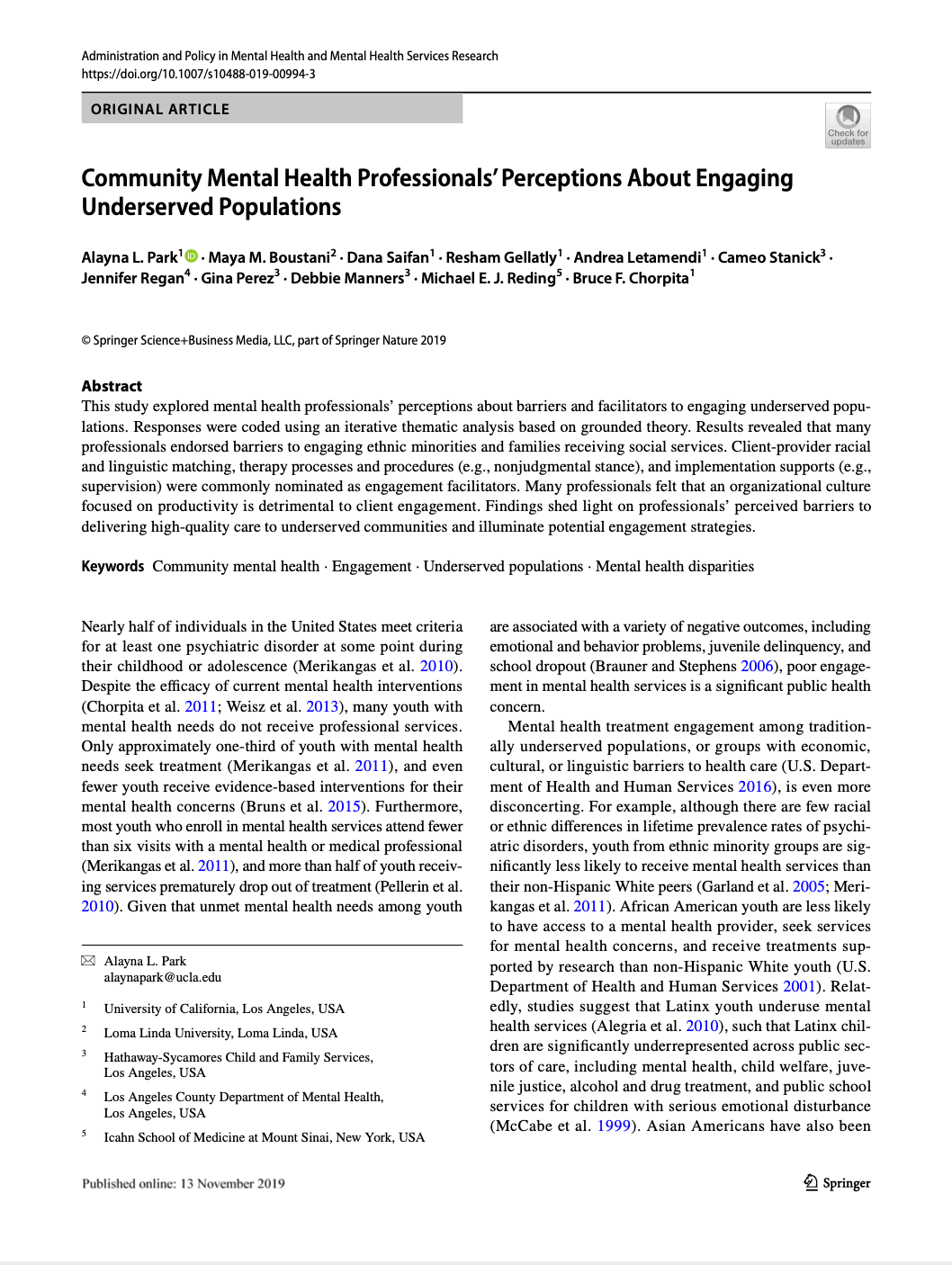Community mental health professionals’ perceptions about engaging underserved populations

This study explored mental health professionals' perceptions about barriers and facilitators to engaging underserved populations. Responses were coded using an iterative thematic analysis based on grounded theory. Results revealed that many professionals endorsed barriers to engaging ethnic minorities and families receiving social services. Client-provider racial and linguistic matching, therapy processes and procedures (e.g., nonjudgmental stance), and implementation supports (e.g., supervision) were commonly nominated as engagement facilitators. Many professionals felt that an organizational culture focused on productivity is detrimental to client engagement. Findings shed light on professionals' perceived barriers to delivering high-quality care to underserved communities and illuminate potential engagement strategies.
Full text available here: Park et al (2019)



